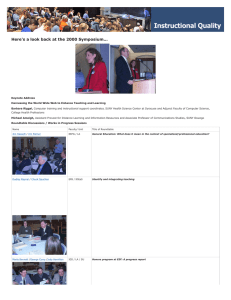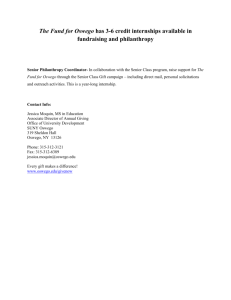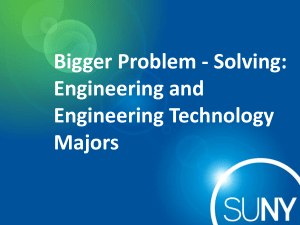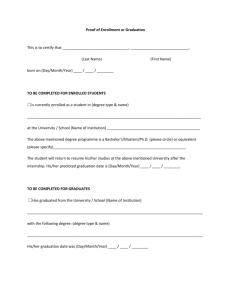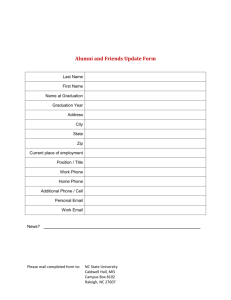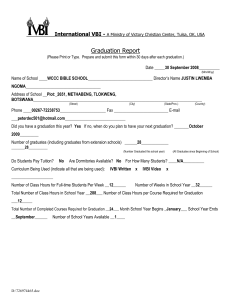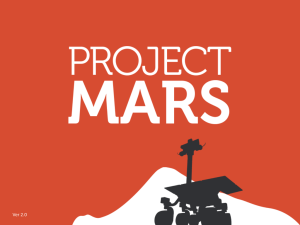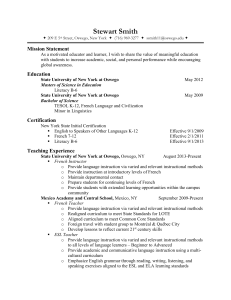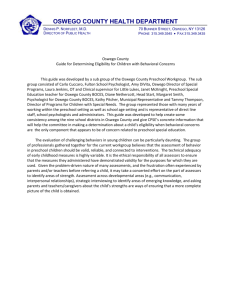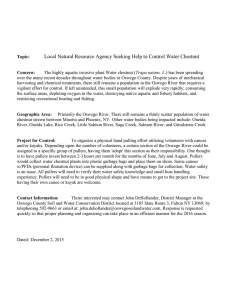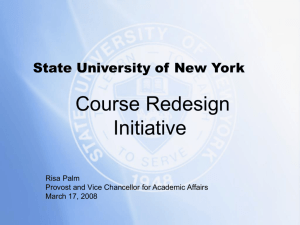My Educational Objectives
advertisement
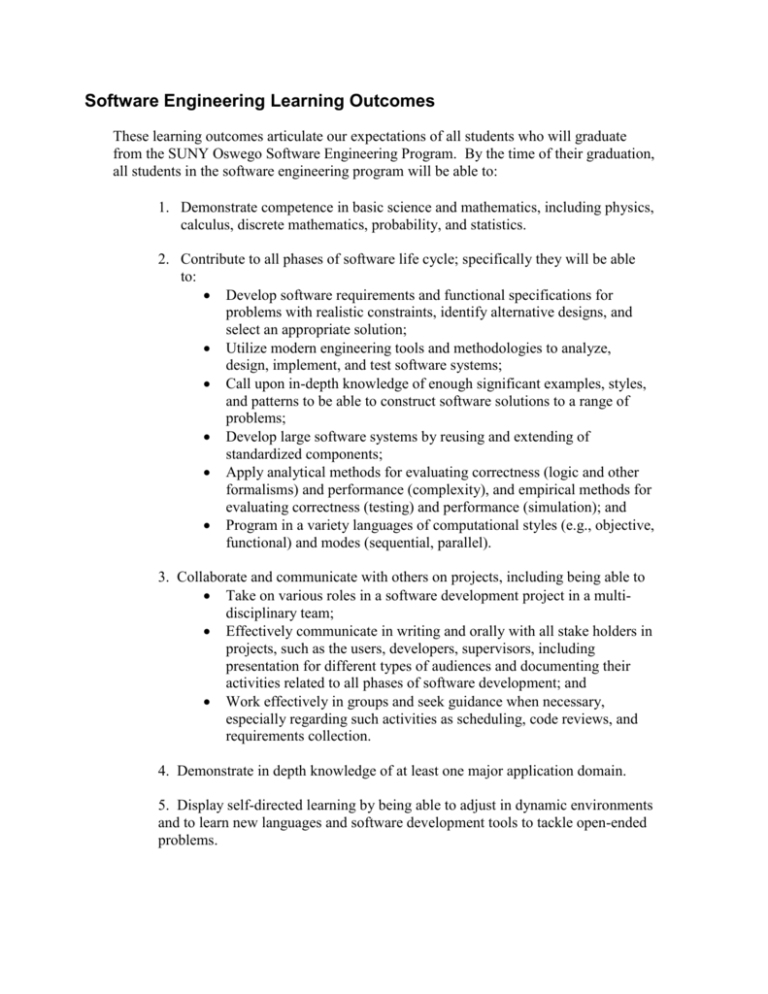
Software Engineering Learning Outcomes These learning outcomes articulate our expectations of all students who will graduate from the SUNY Oswego Software Engineering Program. By the time of their graduation, all students in the software engineering program will be able to: 1. Demonstrate competence in basic science and mathematics, including physics, calculus, discrete mathematics, probability, and statistics. 2. Contribute to all phases of software life cycle; specifically they will be able to: Develop software requirements and functional specifications for problems with realistic constraints, identify alternative designs, and select an appropriate solution; Utilize modern engineering tools and methodologies to analyze, design, implement, and test software systems; Call upon in-depth knowledge of enough significant examples, styles, and patterns to be able to construct software solutions to a range of problems; Develop large software systems by reusing and extending of standardized components; Apply analytical methods for evaluating correctness (logic and other formalisms) and performance (complexity), and empirical methods for evaluating correctness (testing) and performance (simulation); and Program in a variety languages of computational styles (e.g., objective, functional) and modes (sequential, parallel). 3. Collaborate and communicate with others on projects, including being able to Take on various roles in a software development project in a multidisciplinary team; Effectively communicate in writing and orally with all stake holders in projects, such as the users, developers, supervisors, including presentation for different types of audiences and documenting their activities related to all phases of software development; and Work effectively in groups and seek guidance when necessary, especially regarding such activities as scheduling, code reviews, and requirements collection. 4. Demonstrate in depth knowledge of at least one major application domain. 5. Display self-directed learning by being able to adjust in dynamic environments and to learn new languages and software development tools to tackle open-ended problems. 6. Know and embrace the ethical standards of the profession, as articulated by the ACM and IEEE; they understand the ramifications of their work, the social impact and consequent responsibilities they imply. Software Engineering Program Objectives The program objectives are longer range goals that graduates of the program may not completely achieve until 3-5 years after graduation. In other words, this is what a graduate will be able to do after graduating and having some time on the job. The program's Industrial Advisory Board (IAB) is expected to assist in the development of these education objectives. Graduates of Software Engineering at SUNY Oswego will … Understand and apply best known methods and practices across the software development lifecycle, including software requirements, design, analysis, validation and testing, quality assurance, system maintenance, and evolution. Understand and apply the underlying concepts, formalisms, and design principles for a range of software systems and areas of software development. Understand and apply the ideas underlying successful software project management, including planning, estimation, metrics, and teamwork. Use engineering tools and methodologies to analyze and design software systems and make informed, sound software design tradeoffs. Understand the fundamentals of computer science and information technologies and apply them to the solution of practical problems. Evaluate open-ended problems with realistic constraints, identify alternative designs, and select appropriate solutions. Identify social, economic, safety, and ethical issues in an engineering problem and demonstrate that solutions to the problem addresses these issues. Assume a variety of roles in software development teams, applying engineering design and problem-solving skills, as well as an aptitude for innovation. Clearly communicate ideas orally and in writing. Engage in life-long learning, regularly adapting new ideas into their work.
